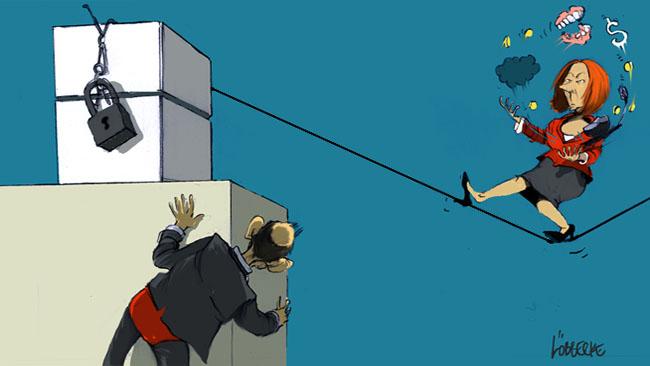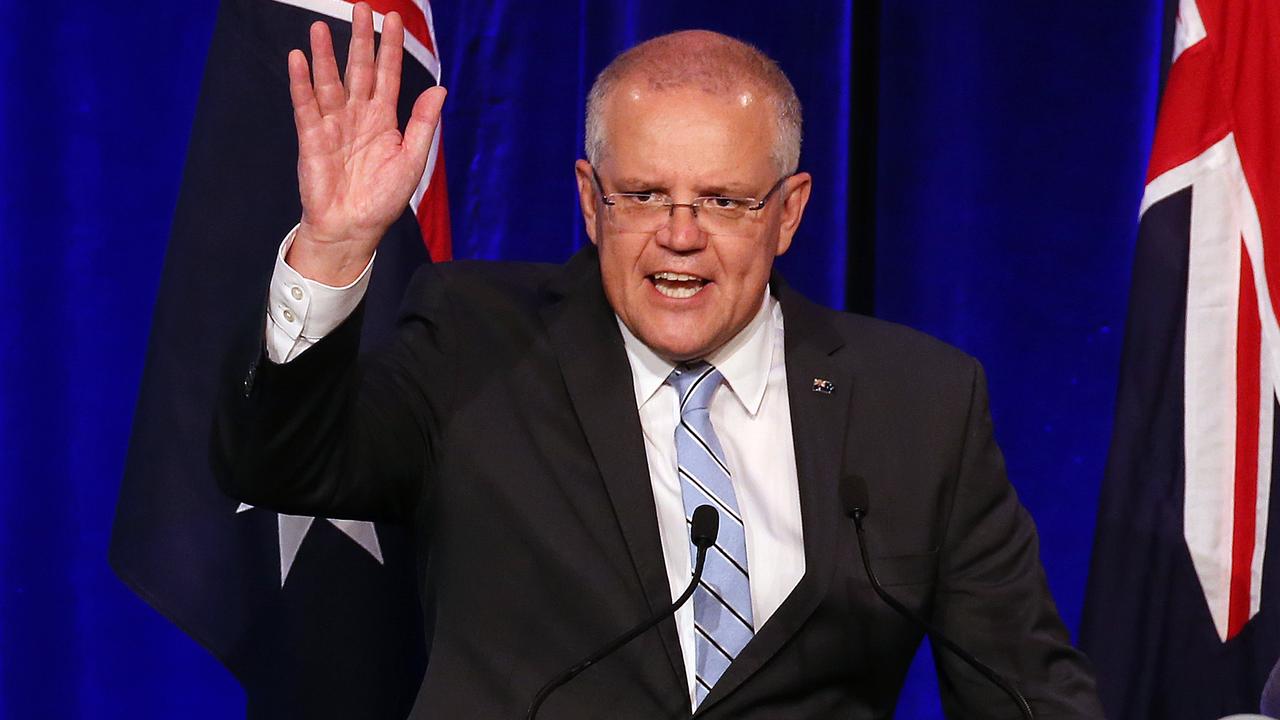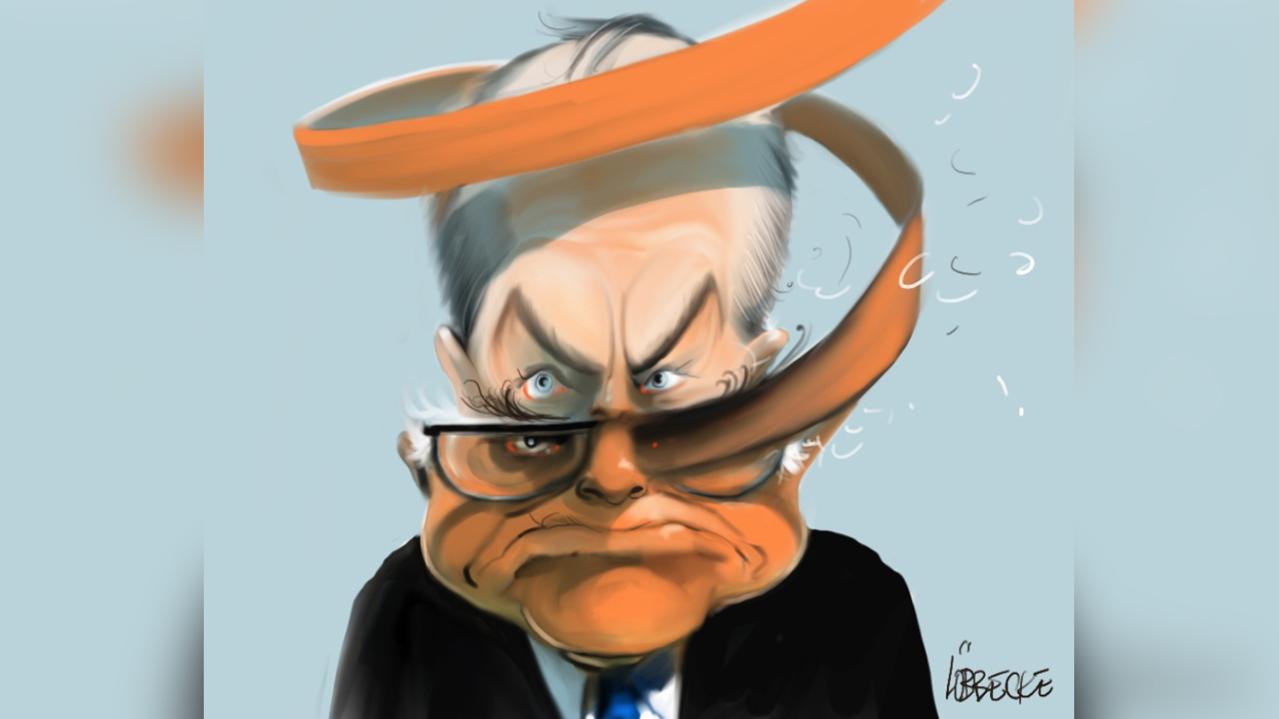PM's policy rush leaves Abbott a fiscal headache
AUSTRALIAN politics is in a really interesting situation right now.

AUSTRALIAN politics is in a really interesting situation right now. The government has made a series of major policy announcements, with more soon to come.
We've seen details (not enough, incidentally) for a National Disability Insurance Scheme trial, to be followed by a national rollout.
This week, Climate Change Minister Greg Combet announced that the floor price on the emissions-trading scheme would be scrapped; Australian businesses would be able to buy carbon permits from Europe; and Health Minister Tanya Plibersek announced on Wednesday plans for a new means-tested dental scheme.
Soon enough we will hear what the government plans to do in response to the Gonski report into school education. Like all of the above policy initiatives, the spend is likely to be significant.
It's the combination of the spend and the timing of the implementation of each of these policies which is so fascinating.
The policies are expensive, but won't be operational for some time. That means Labor is seeking credit for what they have announced, without the likelihood that they will be around to implement (and afford) what's been proposed.
The NDIS will cost an extra $7 billion annually, at least, according to the Productivity Commission. Dropping the floor price of the ETS, it's claimed, will not have an impact on the existing Treasury forecasts. But with the European ETS operating at about $10 a tonne, and European economies struggling, it's going to take some doing for it to nearly triple by 2015 for that to eventuate. If it doesn't then the budget will suffer, courtesy of the fixed costs of compensation.
Once the new dental scheme is fully operational in mid-2014 it will cost about $4bn, and who yet knows what the cost of implementing a scaled-back version of Gonski will add up to? The untainted recommendations carry a hefty price tag of $5bn.
The point of listing all these costs is not to suggest that they are unaffordable. With savings or tax increases, or more likely both, our trillion-dollar economy can accommodate the government's initiatives (if that's what you think the role of government should be).
It's just that it's unlikely to be this government doing the implementing.
With all of the major policy announcements carrying starting dates of mid-2014 or later, Tony Abbott and his Coalition team are likely to be the ones doing the heavy lifting. The polls have been very consistent on this prediction. Even recent improvements in Newspoll put Labor in a position where it will suffer a heavy defeat rather than a landslide.
But there is 15 months before an election is due, and this crucial fact is what makes the policy scramble right now so interesting.
It's easy to conclude that all Labor is doing is locking in commitments to build a legacy that it doesn't deserve with a fiscal recklessness it won't have to account for. But there is more going on here, which we will come back to in a moment.
Legacy building may well be happening, along with planning for the long road of opposition. A vanquished Julia Gillard will want to build a post-prime-ministerial legacy around recent announcements rather than anything Kevin Rudd started. And if the Opposition Leader is handed schemes that are expensive, he will have to either make them happen (by blowing the budget or delivering pain elsewhere), or not follow through on what's been announced.
Either way, that provides a good deal of attack points for a new Labor opposition.
But to assume that this is the primary purpose of the Prime Minister's current thinking is to underestimate her fighting spirit. Others in the government may be thinking this way, but you can bet that at the front of Gillard's mind is the strategy of what these policy pressure points can do this side of the next election, not after it. What they might do to change the political dynamic, to lessen the likelihood of defeat at the polls.
The NDIS delivers maximum credit with minimal spend. Gillard strong-armed the NSW and Victorian premiers into supporting it, she isolated Queensland's Campbell Newman for not, precipitating a collapse in his popularity. All of that is important to the federal political contest.
The government's only budget commitment to the high-cost NDIS is less than $1bn. As political capital goes, it's good value.
If the removal of the floor price on the ETS causes fiscal problems, so what? They won't show up ahead of next year's promised budget surplus, and may never, because Abbott plans to abolish the whole thing anyway. If the complicated agreement with Europe needs to be unwound, at a cost to our international reputation, again that's Abbott's concern to worry about.
In the meantime, any talk about an ETS from 2015 onwards acts as a distraction from the carbon tax we have now, which is an important (defensive) political move for a PM who pledged not to introduce one.
The dental health policy is the most brazen political two-step. In the short term it saves the budget as much as $1.5bn because the existing Chronic Disease Dental Scheme gets terminated in November, even though the new spending allotment doesn't start until 2014.
Again maximum policy credit, minimum fiscal outlay (for now, anyway).
If Abbott does win the next election he will need to find a way to fund the very scheme that Labor implemented to replace the one that he set up as a minister during the Howard years. In the meantime, Gillard gets to claim credit for junking an Abbott policy initiative, one that her minister described as the worst piece of policy that she's ever seen.
Plibersek must have closed her eyes during the pink-batts disaster.
Last, but by no means least, we are left waiting for the government's response to Gonski. The report recommended cuts to some private schools as part of a spending transfer into the public system. But after Mark Latham tried and failed to sell a similar policy leading up to the 2004 election -- branded at the time a "schools hit list" -- the government is unlikely to adopt those parts of the package.
Which means that if Gonski comes even close to being fully implemented, without a hit list style rebalancing of spending priorities, the cost of doing so would be more than the report estimates.
That will be a concern for future budgets, and, in all likelihood, a future government. In the here and now, Gillard will be able to spruik major reforms to go with her large-scale school building program.
Whether it's Joe Hockey as treasurer who will need to find a way to make Labor's agenda add up (in addition to all the bizarre Coalition policy spends), or alternatively Abbott who must confront the political backlash from declaring that he won't proceed with popular policies, neither scenario would bother Gillard.
And, in the unlikely event that Labor somehow does win the next election, and therefore needs to find a way to pay for all of its announceables . . . well that's a problem Gillard would happily be burdened with.
Peter van Onselen is a Winthrop professor at the University of Western Australia.


